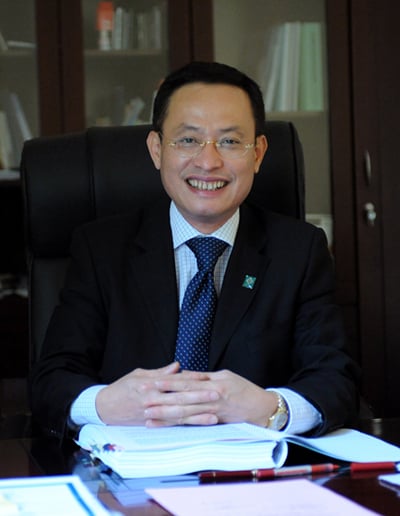 |
Nguyen Xuan VangForect Director General of International Cooperation Department of MOET
"Education is the foundation of sustainable development, so Vietnam and Australia upgrading their relations to a strategic partnership is highly appropriate to further promote cooperation in education. This has always been a highlight and an essential aspect of their bilateral relations because it strengthens people-to-people connections in the long run." |
People still remember Nguyen Xuan Vang as a pioneer when he opened the first ESP (English for Specific Purposes) Resource and Teaching Centre in Hanoi in 1991. At the time, Vietnam was still under the US embargo and everything was difficult. Textbooks and learning materials were scarce. The then-Australian ambassador Graham Alliband decided to support the Centre with 20,000 AUD to purchase English teaching resources including a photocopy machine, cassette players, and a fast cassette copier. This initial support had great value in enabling the Centre to operate and open its doors to everyone, providing free access to materials, supplying resources to schools and universities, and teaching English for specific purposes to numerous people, many of whom later became high-ranking officials in the government.
The opportunity for such support came as Vang participated in the first education collaboration project between Australia and Vietnam in 1984. To this day, he still remembers that the name of the project was VIE/84/R51, aiming at enhancing English language teaching capacity in Vietnam with assistance from Australia through the UNDP. Australia sent professors from the University of Canberra to help Vietnam set up printing and audio recording facilities at Hanoi University of Foreign Studies, as well as providing support in training English teachers from other localities, offering dozens of scholarships every year for Vietnamese people to pursue masters degrees in Australia, and offering supplementary English language courses for key officials in various industries.
Since then, in various positions, whether at the Hanoi University of Foreign Studies, the Viet Nam – Australia Training (VAT) Centre, the Ministry of Education and Training, or in different roles in charge of education within high-level Vietnamese delegations to Australia, Vang has always been one of the key figures connecting the education sectors of the two countries.
One of these notable collaboration programmes took place during Vang’s tenure as the Rector of Hanoi University of Foreign Studies. He laid the foundation for the establishment of one of the first international joint training programmes in Hanoi, which is still effectively in operation to this day: It is the joint training programme initiated in 2002 between Hanoi University of Foreign Studies (now Hanoi University) and Australia’s La Trobe University which ranked among the top 300 universities in the world. Over 20 years, the programme has successfully trained over 3,000 Bachelor of Business and more than 1,000 Master of Business Administration graduates, becoming a renowned joint programme with significant contributions to workforce development in Vietnam.
At the Ministry of Education and Training, Vang served as the head of the education working group with Australia, which included representatives from various Vietnamese ministries and departments conducting annual reviews of educational cooperation activities and designing proposals that aligned with Vietnam's needs and optimised the Australian aid to Vietnam.
As former Director General of Vietnam International Education Development (VIED) Nguyen Xuan Vang also signed cooperation agreements with over 20 Australian universities to support the Government of Vietnam in sending Vietnamese students abroad for bachelor’s, master's and doctoral studies, thereby reducing training costs and economising the state budget. “With keen collaboration from Australian universities, Vietnam has selected hundreds of students to study in Australia in essential sectors for the country, and the educational relations are becoming increasingly stronger”, said Vang.
Even now, after retiring, Vang continues to provide advice and connect Vietnamese and Australian universities. While having worked with many countries, Vang said he feels a strong attachment to Australia, "like a predestined relationship", it’s where many of his close friends reside, and for him, it feels like returning home every time he visits Australia.
